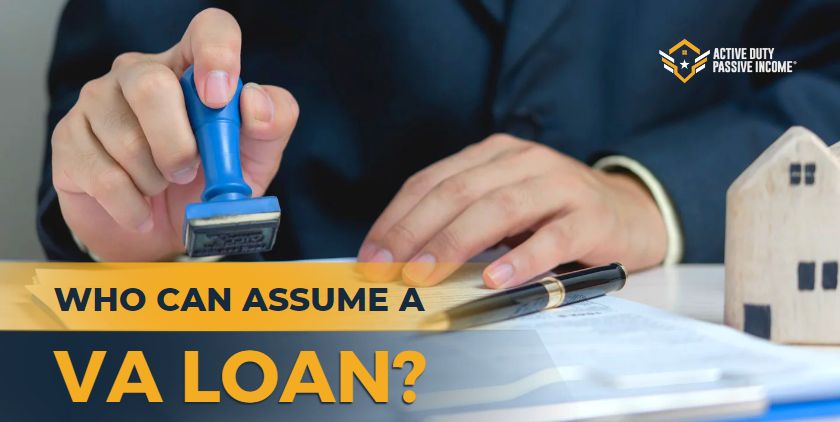VA loans are a popular mortgage option, especially among military service members and veterans. One of the unique features of VA loans is that they are assumable under certain conditions. This means that a homebuyer may be able to take over the mortgage of the current homeowner. But can real estate investors assume VA loans? Let’s take a closer look.
What is a VA Loan Assumption?
A VA loan assumption allows a new borrower to take over the mortgage of the current VA loan holder Rather than getting a new loan, the buyer “assumes” the original loan complete with its interest rate and terms
This can benefit buyers by allowing them to obtain low interest rates that may no longer be available. It also saves on closing costs since assumption does not require appraisals, credit checks, or other fees associated with a new mortgage.
For sellers, it provides a way to market the home as having an assumable VA loan which may attract buyers. It also avoids paying prepayment penalties that some loans charge.
VA Loan Assumption Requirements
While VA loans are assumable, there are requirements for both buyers and sellers:
-
For Buyers: The lender must approve the assumption and the new borrower. The buyer will need to provide credit, income, and asset documentation to prove they can repay the loan. Minimum credit scores around 580 are often required.
-
For Sellers: The original veteran borrower must agree to the assumption. If the buyer is not a veteran, the seller’s VA entitlement stays with the property until it’s paid off.
The process to assume a VA loan takes 30-45 days on average. Buyers work directly with the existing lender, not the VA.
Can Investors Assume VA Loans?
The short answer is no, investors cannot assume VA loans.
VA loans require the borrower to certify they intend to use the home as their primary residence. The VA provisions also specify that the loan cannot be assumed solely for investment purposes.
So while VA loans are assumable, it is only to owner-occupant buyers who will live in the home as their primary residence. The VA does not permit assumptions by real estate investors who plan to rent out the property.
Alternatives for Real Estate Investors
While investors cannot assume VA loans directly, there may be some workarounds:
-
Lease-option agreements – An investor could structure a lease with option to purchase the home at a future date. This gives time to qualify for a conventional loan.
-
Owner financing – The seller carries financing at an agreed upon interest rate and term. This avoids bank qualifications.
-
Partnership purchase – Partner with a buyer who will live in the home and qualify for the VA assumption, then transfer interest later.
However, these methods can get complicated and may violate the spirit of the VA loan program. Investors should consult professionals to ensure they follow regulations.
Risks of Attempting VA Assumption
It’s important for investors to understand the risks of trying to improperly assume a VA loan:
-
Loan default if the occupation fraud is detected, leaving the investor liable.
-
Major fines and penalties from the VA for false statements about occupancy.
-
Harm to the reputation of the investor for taking advantage of a program meant for owner-occupants.
-
Difficulty obtaining any future financing due to tarnished records.
In other words, attempting to assume a VA loan under false pretenses is risky and unwise for investors. It’s better to explore other loan programs and investment property financing options.
Key Takeaways
-
VA loans are assumable, allowing qualified borrowers to take over the existing mortgage.
-
Assumptions can benefit buyers through lower rates and reduced fees.
-
Sellers can market assumability as a sales feature.
-
Investors cannot directly assume a VA loan meant for primary residences.
-
Alternatives like lease-option agreements may allow investors to acquire a VA property.
-
Deceiving the VA about occupancy to assume a loan has major legal and financial risks.
While VA loan assumptions appeal to owner-occupants, investors need to seek other avenues. Being forthright from the start about plans to rent out the property can help avoid headaches down the road. Consulting with real estate professionals is the smartest way forward for investors eyeing a VA loan property.

VA Loan Assumptions Explained | Why are they not closing!?
FAQ
Can an investor assume a mortgage?
Is a VA loan assumable by anyone?
Can you assume a VA loan without being a veteran?
Who can assume a VA loan?
Pending lender approval (not all VA lenders allow assumptions) and if a buyer qualifies for the payment amount, anyone can assume the mortgage: civilian, active duty military, or veteran. If the loan assumer is not a veteran, then the seller will lose his VA loan benefit because it stays with the property and mortgage until it is paid off.
Can a VA loan be used for investment property?
2.**1- to 4-Unit Property**: You can use a VA loan to buy a single-unit home, duplex, triplex, or quadplex, as long as one of those units is your primary residence.This means you can purchase an investment
Is a VA loan assumption right for You?
Veterans who would typically be exempt from the VA Funding Fee are also exempt from this assumption fee. Loan assumers might also want to pay for an appraisal, but those aren’t required with loan assumptions. Unsure if a VA loan assumption is right for you? Talk with a home loan specialist about your unique homebuying journey.
What happens if a VA loan assumer is not a veteran?
If the loan assumer is not a veteran, then the seller will lose his VA loan benefit because it stays with the property and mortgage until it is paid off. The buyer will need to meet lender specific requirements. Some of these parameters include: Buyer takes on all mortgage terms and obligations.
